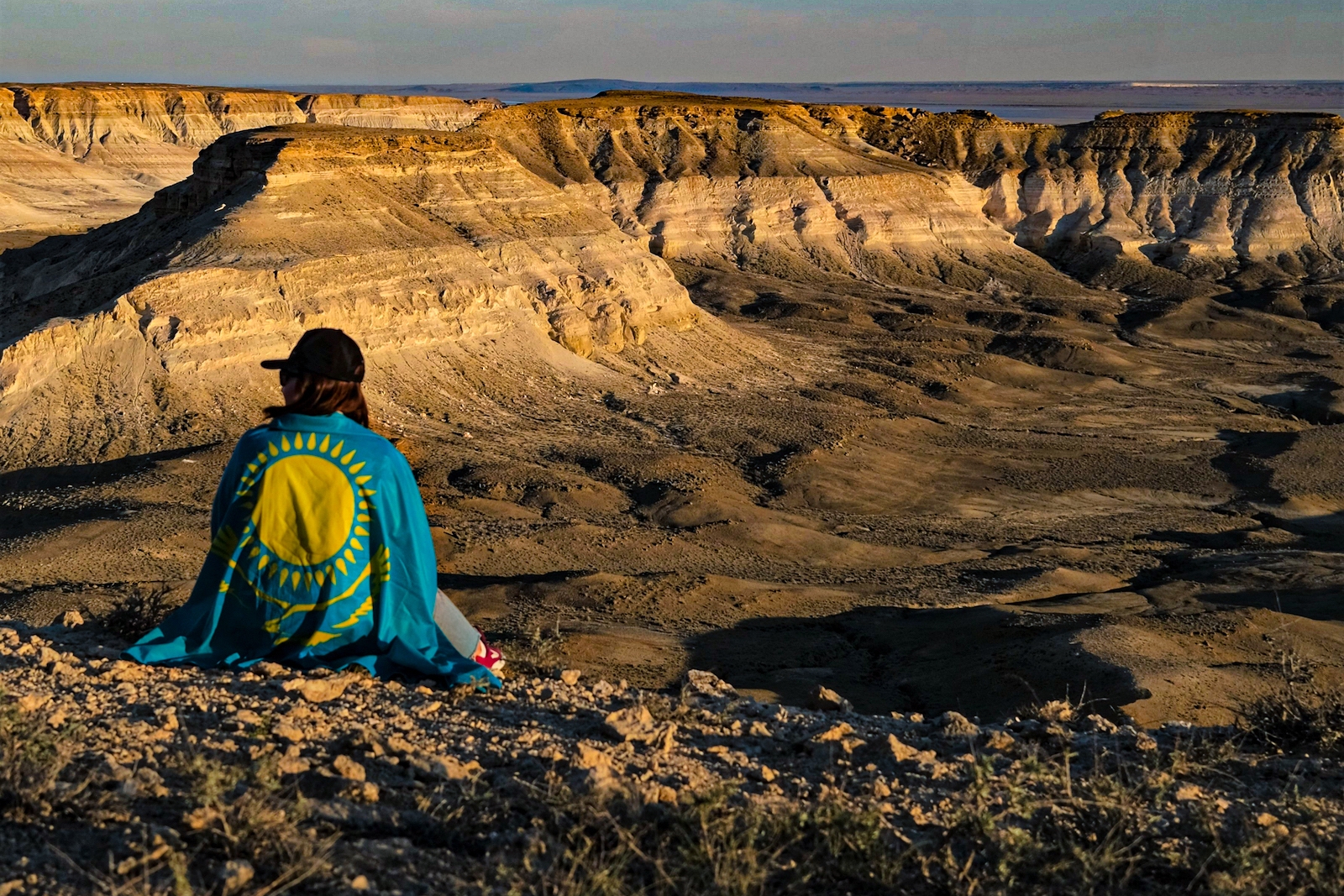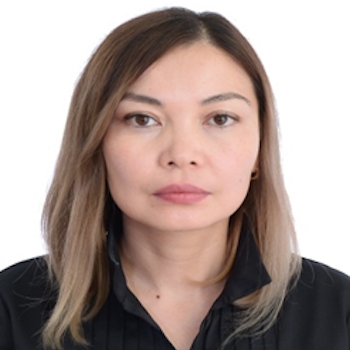
Human Rights in the ‘New Kazakhstan’
Kazakhstan is going through a difficult, but very crucial moment. Two years of a pandemic and the tragic events of January exposed many socio-economic problems, including those related to the protection of human rights. On June 5, the people of Kazakhstan voted for the adoption of amendments to the country’s constitution, in which the mechanisms for protecting human rights are significantly strengthened.
Thus, the Commissioner for Human Rights (Ombudsman) is granted immunity from prosecution, becomes independent and not accountable to any state bodies and officials, and has the right to apply to the Constitutional Court. The Constitutional Court, at the request of citizens, will consider the normative legal acts of the Republic of Kazakhstan, directly affecting their rights and freedoms, for compliance with the Constitution. The decision to abolish the death penalty is also fixed at the constitutional level.
The work of the prosecutor’s office will be determined by constitutional law. This will strengthen systemic human rights activities and supreme supervision over the observance of the rule of law. Now, after the adoption of constitutional amendments by the voters, more than 20 laws will now be changed.
The attentive state vision
Kassym-Jomart Tokayev, Kazakhstan’s president, is developing the concept of the “Attentive State.” This initiative forms a new public institution – the National Kurultai – which replaces the National Council of Public Trust and is designed to revive the traditions of steppe democracy and create a strong link between the government and civil society. On June 16, the first National Kurultai was held.
Kazakhstan’s Ministry of Justice recently posted an analysis of political reforms in the country in the field of human rights. Kazakhstan ratified the International Covenant on Civil and Political Rights on November 28, 2005. In 2008, a mechanism was launched to submit the Universal Periodic Review of Human Rights to the United Nations. The Ministry of Justice, as a coordinating body, involves both state bodies and representatives of the civil sector in the preparation of reports on the International Covenant and the Universal Periodic Review. Recommendations of the UN Human Rights Committee are reflected in legislation proposed in parliament.
Under the leadership of Tokayev, human rights have been prioritized. On June 9, 2021, Tokayev signed the decree “On further measures of the Republic of Kazakhstan in the field of human rights,” which provides for the approval of the plan of priority measures in the field of human rights.
The plan was adopted on June 11, 2021, and consists of 26 measures aimed at eliminating discrimination against women; human rights for people with disabilities; ensuring the rights of human trafficking victims; human rights in the field of criminal justice, enforcement, and prevention of torture and ill-treatment; the right to freedom of association; the right to freedom of expression; the human right to life and public order; improving the efficiency of interaction with non-governmental organizations; improvement of mechanisms for interaction with UN treaty bodies and special procedures of the UN Human Rights Council.
To date, 19 of the 26 activities of the plan have been implemented. Since June 2021, 6 laws, and 10 other regulatory legal acts have been adopted, and 2 draft laws have been developed. Following the ongoing concept of the “Listening State,” the development of all normative legal acts took place with a wide public discussion with the participation of civil society.
Let’s take a closer look at some sections of the plan.
Tackling discrimination against women
In the implementation of the plan, the list of jobs where the use of women’s labor is limited was canceled. On October 12, 2021, the law “On Amendments and Additions to Certain Legislative Acts of the Republic of Kazakhstan on the Issues of Social Protection of Certain Categories of Citizens” was signed, containing the rule on the abolition of the list, which will expand employment opportunities for women by ensuring access to all jobs, including in the fields of industry, transport, and construction, due to changes in technology, automation of production and modernization of equipment.
This measure is aimed at eliminating the division of professions by sex, and, accordingly, at eliminating gender discrimination in the workplace. It must be understood that the existence of such a list creates a significant wage gap between men and women. So, for example, in 2019, the average difference between the wages of men and women in Kazakhstan was 33-35%. In the Russian Federation, it was 25-35%, while in the United States, it was 11-23%.
Human rights for persons with disabilities
In pursuance of the plan, a draft law “On Amendments and Additions to Certain Legislative Acts of the Republic of Kazakhstan on Improving the Quality of Life of Persons with Disabilities” was developed. Among other things, it provides amendments to involve persons with disabilities and people with limited mobility in the coordination of projects in the field of construction and their acceptance into service.
Rights of human trafficking victims
The draft law “On Amendments and Additions to Certain Legislative Acts of the Republic of Kazakhstan on Improving the Quality of Life of Persons with Disabilities” includes provisions for special social services for victims of human trafficking. A Joint Order of the Ministry of Internal Affairs, the Ministry of Education, the Ministry of Health, and the Ministry of Labor and Social Protection was also signed, providing amendments to the criteria for assessing the presence of ill-treatment and social deprivation, taking into account the provisions of the Istanbul Protocol and the UN Palermo Protocol.
A lot of work is done in the framework of training seminars. Thus, according to the Academy of Law Enforcement Agencies under the Prosecutor General’s Office, in 2021, 40 training events were held for 1,769 law enforcement and special government employees, involving 77 foreign experts from Interpol and the United Nations. The work was also attended by representatives of the prosecutor’s offices of the CIS member states and international organizations – the Coordinating Council of Prosecutors General of the CIS member states, and the UN Office on Drugs and Crime for Central Asia. Some of the events were organized with the support of the OSCE Program Office in Nur-Sultan, the UN Office on Drugs and Crime, and the U.S. Embassy in Kazakhstan.
In 2022, 21 training events were held for 631 law enforcement and government officials, and representatives of non-governmental organizations.
Criminal justice reform
In this section, special attention is paid to the rights of convicts. There will be a phased transfer of the functions of medical support for convicts and remand prisoners from the system of the Ministry of Internal Affairs to the Ministry of Health. The transfer will ensure the independence of medical workers from the administration of institutions and will create conditions for the eradication of possible facts of unlawful methods of work.
It is also planned to introduce continuous video surveillance in penitentiary institutions and police stations, as well as in all operational and investigative units of law enforcement agencies. This measure will ensure the safety of convicts and minimize offenses in these institutions.
On December 7, 2021, President Tokayev signed the law “On amnesty in connection with the 30th anniversary of the independence of the Republic of Kazakhstan.” Particular attention is paid to the socially vulnerable categories of citizens – veterans, minors, elderly women and men, persons with disabilities, as well as other persons who do not pose a serious threat to the security of society and the state. About a thousand people were released, and almost 3,800 people were removed from the probation service.
Right to freedom of association
In order to improve legislation in the religious sphere, on December 29, 2021, a law was adopted containing amendments aimed at simplifying the procedure for registering religious associations, switching from a permissive to a notification nature of holding religious events. The new procedure also involves psychologists, sociologists, and other specialists in religious studies expertise. Thus, it is assumed that changes to simplify legislation in the field of religion will ensure freedom of religion, and freedom of worship across the world’s 9th largest country.
Interaction with the UN Human Rights Council
A special mechanism for considering requests from human rights treaty bodies was launched on February 1. This mechanism provides for collegial consideration of requests by an interdepartmental working group and allows the involvement of the author of the complaint in the process of considering requests. This will contribute to an objective resolution of issues raised.
Impact on the human rights situation
It is expected that the implementation of President Tokayev’s new human rights plan would create a positive impact on human rights in Kazakstan, which, in turn, will affect the life of society. In 2022, which has become a turning point for Kazakhstan, work in this direction is intensifying. Taking into account the reaction of society, and international experience, new measures are being taken to further improve the legislative framework and law enforcement practice.
